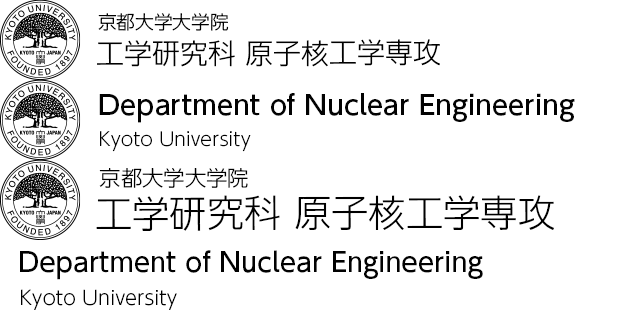Philosophy and Objectives
Ever since the Department of Nuclear Engineering was first established, we have constantly pondered the question of "What is nuclear engineering?" in terms of research into nuclear technologies and into the physics and mathematics that it is founded on. We have also explored the question of how best to approach education and research in this field. As a result, we have passed through a number of transitions, evolutions, and developments. In a reorganization in FY1994 we shifted our focus from nuclear to quantum phenomena, and then in FY2001 we examined how best to organize the department and we devised a set of principles for this. At present, our philosophy (as expressed on our web site) is summed up by the following statement:
"Our aim is to explore quantum technologies leading to the frontiers of science such as quantum beams, nanotechnology, and atomic technology. This is done from a microscopic point of view based on the science of quantum phenomena relating to elementary particles, atomic nuclei, and atoms and molecules, for the development of technological applications in materials, energy, life sciences, and the environment, and for the construction of recycling systems. Thus, through systematic and comprehensive programs of education and research, we are training highly skilled researchers and engineers who are capable of working in their fields of specialization at advanced levels. In this way, we aim to contribute to the development of a more prosperous and sustainable society."
We have strived to prepare a systematic curriculum based on this philosophy and objectives, and we have reorganized the department into four research groups to engage in education and research into the science and engineering of quantum phenomena. Technologies that utilize the properties and characteristics of quantum phenomena are the focus of R&D efforts in a variety of fields, and their applications are expanding from the world of atoms and molecules on the nanometer scale, to energy systems, data communication, life sciences, and outer space. In this way, the Department of Nuclear Engineering is engaged in education and research into quantum science and engineering, in areas that include the advanced utilization of ion, electron, laser and other particle beams, and in the development of materials based on various quantum techniques; in the development of advanced measurement methods with devices such as superconductor radiation detectors; in medical applications; in systems to enable the safe and effective utilization of quantum energy; in R&D aimed at nuclear fusion; in the analysis of the structure and function of materials using neutrons; and in quantum data communication based on atoms and photons.
